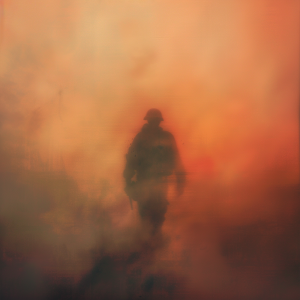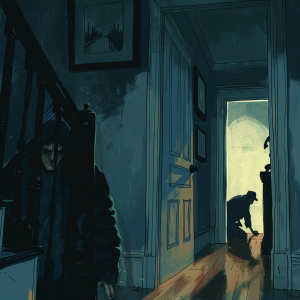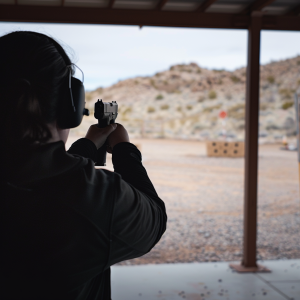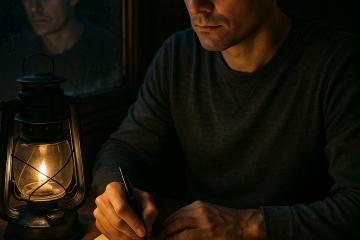
Mentally and Physically prepare for the fog of war
“Fog of War” is a term I use in both everyday preparedness, as well as in being prepared for self-defense scenarios. Today I’m going to address firearm self-defense scenarios more specifically, however, before I do, I just want to bring up one point that applies universally to everyday preparedness. Having THINGS, such as food, water, ammo, etc. doesn’t make a person prepared. PRACTICE using, finding, thinking about, learning about the use of those things is what makes a person prepared. After all, Mental Preparedness is the 2nd Principle of Preparedness for a reason. A firearm is no different except that if it’s a moment in which you actually find yourself considering the use of a firearm, if you haven’t practiced like your life depends on it, then it likely won’t matter when it does.
The term “fog of war” is heard frequently amidst the fighting terrain of our soldiers. In the middle of a shoot out between our forces and enemy combatants, time seems to warp, speed up, and just plain stop, depending on which soldier you speak with. This phenomenon is a result of the mind assimilating all that is going on around them at the time of a high adrenaline state. This altered state doesn’t just occur on the battlefield however. It will affect us any time that we are threatened or surprised.
When “fog of war” affects us, it automatically brings with it an uncertainty regarding our own capabilities. It also fogs our perception of the intent of any

Thief in the night
adversary or their capability during an engagement of self-defense. We tend to have tunnel vision which inhibits our ability to see the whole picture. How many times have you heard a witness say “time just seemed to stand still,” or “I didn’t see anything else except that gun”? This is the result of the alteration of perceptions such a time and depth. We also lose our fine motor skills in such in scenario. And we certainly have an alteration of our sensory perception.
Again, perfect example, how many times have you heard of a person being shot or severely wounded, but not aware of it until after the climax of the battle was finished? Considering that all of this is realistic if you ever find yourself in a scenario when you need to save your life, it doesn’t sound like the ideal time to be handling a firearm, right? Well, the point of this article is to be sure that you’re aware that just because you have a firearm doesn’t mean that it’s all you need for protection when you hear glass breaking in the middle of the night.
Most gun owners do not take into account the fog of war effect. They presume that since they have a firearm and have practiced with it a couple of
times at the range that they are safe. While some may call me “paranoid” that I have rehearsed again and again what I will do when walking to my car in the event of an attack, I try to explain to them that I’m training my mind to act in a specific manner rather than jumping back, swearing, and losing my senses. (I keep hoping that if ever I end up leaving this earth, it won’t be with my final words being a curse!) I am well aware that shooting at the range, indoors or outdoors, no matter how realistic the shooting exercise is, it still does not make me an expert in battling a real attack. Only my mental and physical practice can appropriately overcome my initial instincts of fear and flight. Any person who’s ever found themselves in a real battle where life and death hangs in the balance, will tell you that the assets around them weren’t the tools, they were the other people who had their head in the game–thanks to the mental preparedness that took place long before the game started.

An improper firearm grip
The only way to successfully overcome the effects of the fog of war is to practice. Practice mentally AND physically. Don’t rely on yourself having to remember specific actions. Practice with your firearm so much that it’s completely second nature. Where self-defense with a firearm is concerned, be sure that you practice so much that you know the feel of that firearm as well as the outline of your child’s hand. Mentally rehearse multiple scenarios in your home so that when “it” happens, your brain has already embraced the sequence of actions that you will take. Walk through those actions. Practice, practice, practice. Particularly under the stress of an attack, you must have the mindset to defend your life—even if that means the loss of the perpetrators life, have the ability to deliver the target shots necessary to STOP your attacker, and to do so in a manner in which you will not be emotionally altered for the rest of your life. This only comes with education and practice. So, will you schedule the time it takes to defend your life, or will you just hope that it just happens?


